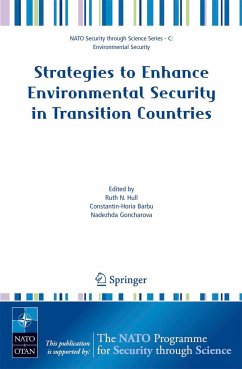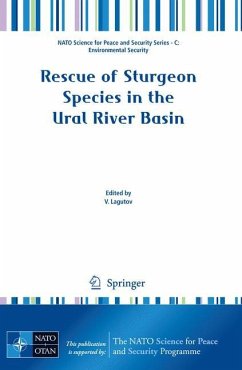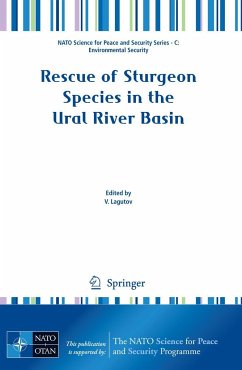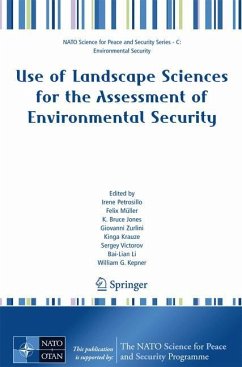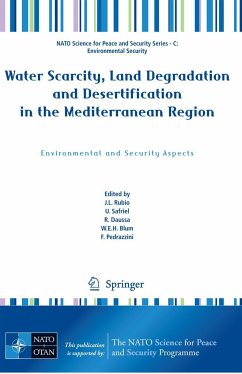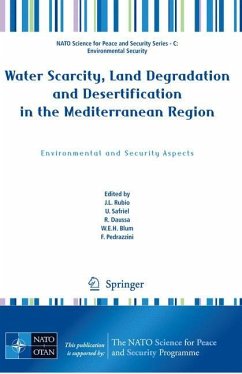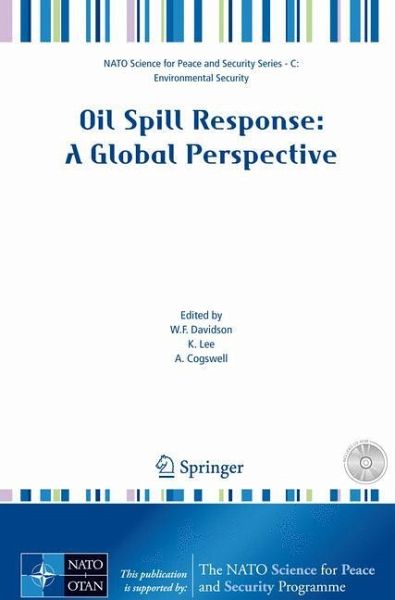
Oil Spill Response: A Global Perspective
Versandkostenfrei!
Versandfertig in 6-10 Tagen
151,99 €
inkl. MwSt.
Weitere Ausgaben:

PAYBACK Punkte
76 °P sammeln!
International experts in the field of oil spill response, including reprsentatives from 26 NATO countries, participated in a workshop in Canada to discuss their experience in the development and application of current and emerging technologies for oil spill response in the marine environment. These presentations which form the basis of chapters in this book provide a practical viewpoint of methods used to deal with oil spills under the variety of environmental conditions found in the marine environment. In particular, focus is given to the evaluation of oil spill countermeasures for use under ...
International experts in the field of oil spill response, including reprsentatives from 26 NATO countries, participated in a workshop in Canada to discuss their experience in the development and application of current and emerging technologies for oil spill response in the marine environment. These presentations which form the basis of chapters in this book provide a practical viewpoint of methods used to deal with oil spills under the variety of environmental conditions found in the marine environment. In particular, focus is given to the evaluation of oil spill countermeasures for use under arctic conditions in light of anticipated regional increases in marine traffic (e.g. Northwest Passage) and industrial activities (e.g. offshore oil and gas exploration) in the future.
This book provides a timely international perspective on applied research and development, technology transfer, and "lessons learned" from field trials and actual case studies associated with recentspill events. Topics include Preparedness/Contingency Planning, (Eco-terrorism); Oil Spill Fate and Transport (Environmental Persistence, Remote Sensing, modelling, Biodegradation), Biological Effects (Environmental Effects Monitoring and Environmental Risk Assessment); and Operational Response (Containment/Recovery Treating Agents, Shoreline Cleanup, In-situ Burning, Emerging Response Strategies). This book provides a synopsis as to the methods currently employed to deals with spills and an insight on future technologies under development.
This book provides a timely international perspective on applied research and development, technology transfer, and "lessons learned" from field trials and actual case studies associated with recentspill events. Topics include Preparedness/Contingency Planning, (Eco-terrorism); Oil Spill Fate and Transport (Environmental Persistence, Remote Sensing, modelling, Biodegradation), Biological Effects (Environmental Effects Monitoring and Environmental Risk Assessment); and Operational Response (Containment/Recovery Treating Agents, Shoreline Cleanup, In-situ Burning, Emerging Response Strategies). This book provides a synopsis as to the methods currently employed to deals with spills and an insight on future technologies under development.




